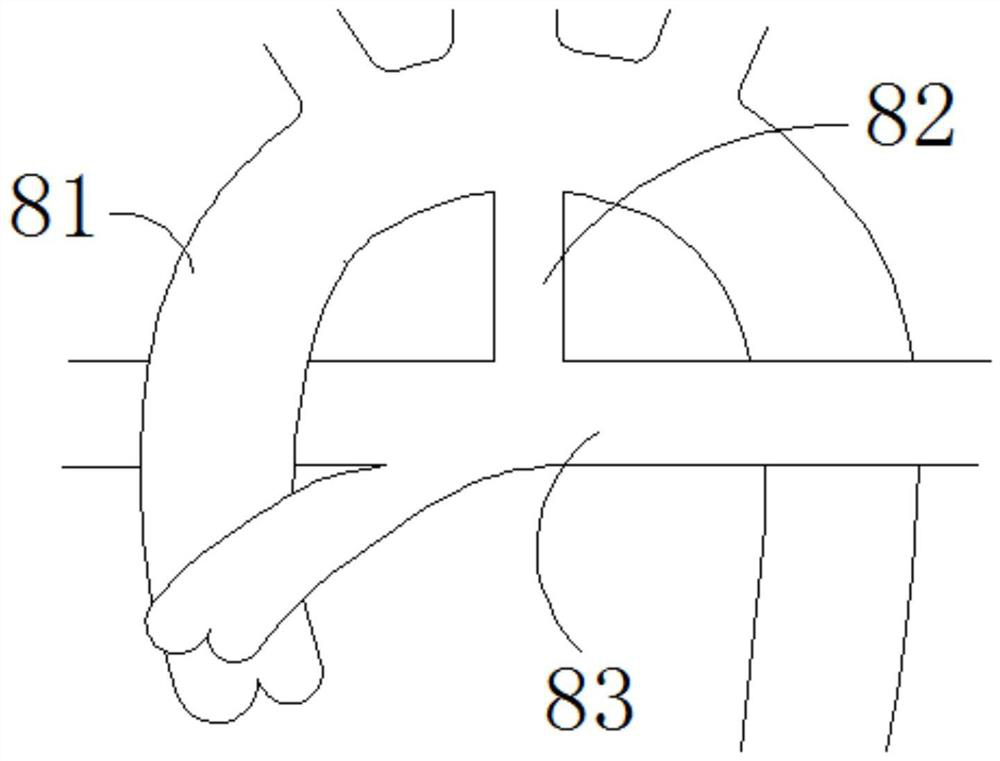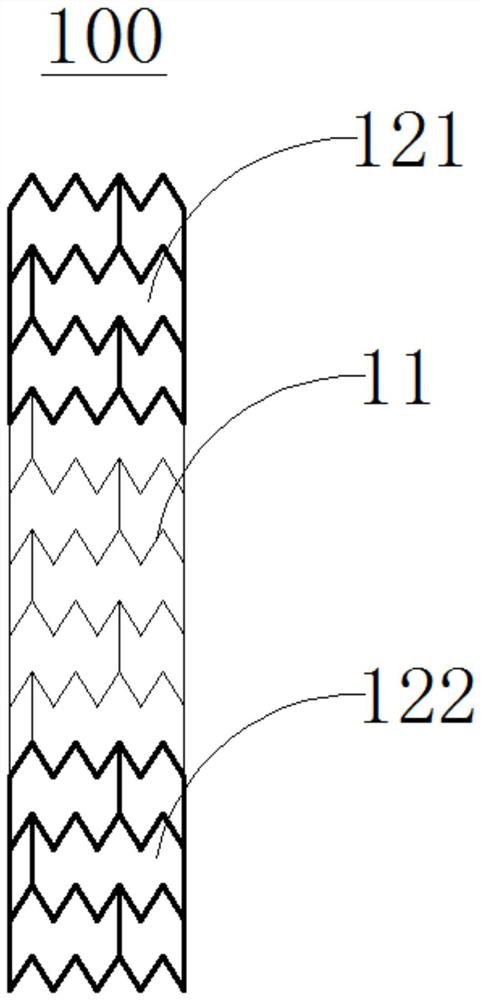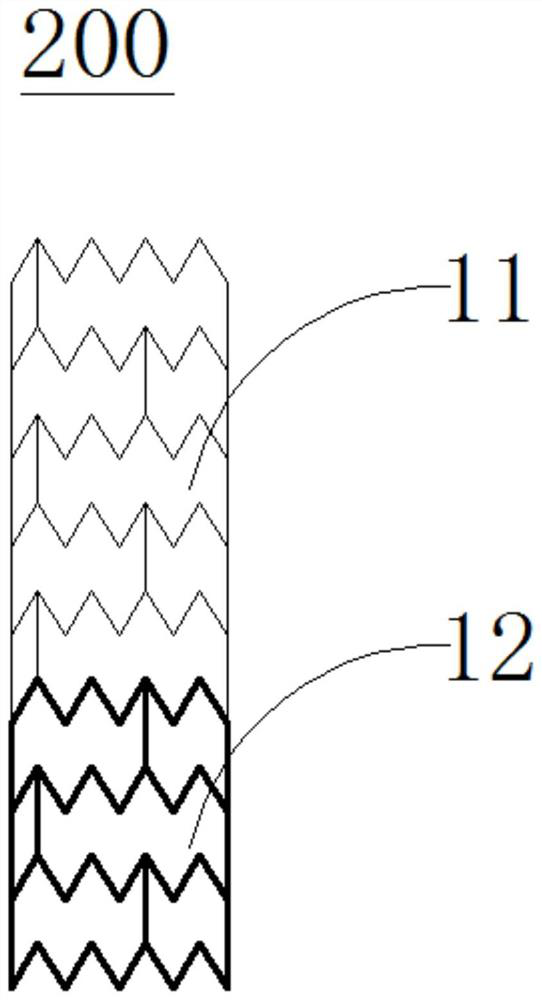Brackets and Bracket Systems
A segmental and regional technology, applied in stents and other directions, can solve the problems of large surgical trauma, damage, and difficulty in removal, and achieve the effect of reducing the probability of injury and other complications
- Summary
- Abstract
- Description
- Claims
- Application Information
AI Technical Summary
Problems solved by technology
Method used
Image
Examples
Embodiment 1
[0057] A ball expandable stent, such as Figure 6 As shown, it includes a 5mm long degradable segmental region 11 and a 3mm long non-degradable segmental region 12 disposed at the distal end of the stent. The degradable segment area 11 can be made of degradable nitrided iron tube by laser engraving and polishing. It can be developed by itself, but the development is weaker than that of the non-degradable segment. It can be coated with rapamycin polylactic acid coating. The non-degradable segmental area 12 can be made by laser engraving and polishing with a high-developability platinum-chromium alloy tube, which can be developed by itself. The degradable segment area 11 and the non-degradable segment area 12 can be connected together by welding, and then pressed onto the balloon catheter.
[0058] After the stent is expanded and released by the balloon catheter in vitro, the axial profile of the main body of the stent without restraint is rectangular, and is suitable for arte...
Embodiment 2
[0062] A ball-expanded stent includes a 10mm-long degradable section area and 5mm-long non-degradable section areas arranged at both ends of the stent. The degradable segmental area can be made of degradable polylactic acid tubes by laser engraving and polishing, which cannot be developed by itself, and no development structure is set. Among them, the non-degradable segmental area can be made of high-developing tantalum-niobium alloy tubes through laser engraving and polishing, and can be developed by itself. The degradable segment area and the non-degradable segment area can be connected together by crimping, and then crimped to the balloon catheter.
[0063] After the stent is expanded and released in vitro by the balloon catheter, the axial profile of the main body of the stent without restraint is drum-shaped, and is suitable for arterial catheters with a large outer diameter in the middle and smaller outer diameters at both ends. The high visibility of the non-degradable s...
Embodiment 3
[0067] A ball-expanded stent includes a 16mm-long degradable section area and a 4mm-long non-degradable section area arranged at one end of the stent. The degradable segment area can be made of degradable pure zinc tube through laser engraving and polishing, which can be visualized by itself, but the visualization is weaker than that of the non-degradable segment. The non-degradable segmental area can be made by laser engraving and polishing with high-visibility platinum-chromium alloy tube, which can be developed by itself. The degradable segment area and the non-degradable segment area can be connected together by riveting, and then crimped to the balloon catheter.
[0068] After the stent is expanded and released in vitro by the balloon catheter, the axial profile of the stent main body without restraint is dumbbell-shaped, and is suitable for arterial catheters with obviously small middle outer diameter and large outer diameter at both ends. The high visibility of the non...
PUM
 Login to View More
Login to View More Abstract
Description
Claims
Application Information
 Login to View More
Login to View More - R&D
- Intellectual Property
- Life Sciences
- Materials
- Tech Scout
- Unparalleled Data Quality
- Higher Quality Content
- 60% Fewer Hallucinations
Browse by: Latest US Patents, China's latest patents, Technical Efficacy Thesaurus, Application Domain, Technology Topic, Popular Technical Reports.
© 2025 PatSnap. All rights reserved.Legal|Privacy policy|Modern Slavery Act Transparency Statement|Sitemap|About US| Contact US: help@patsnap.com



